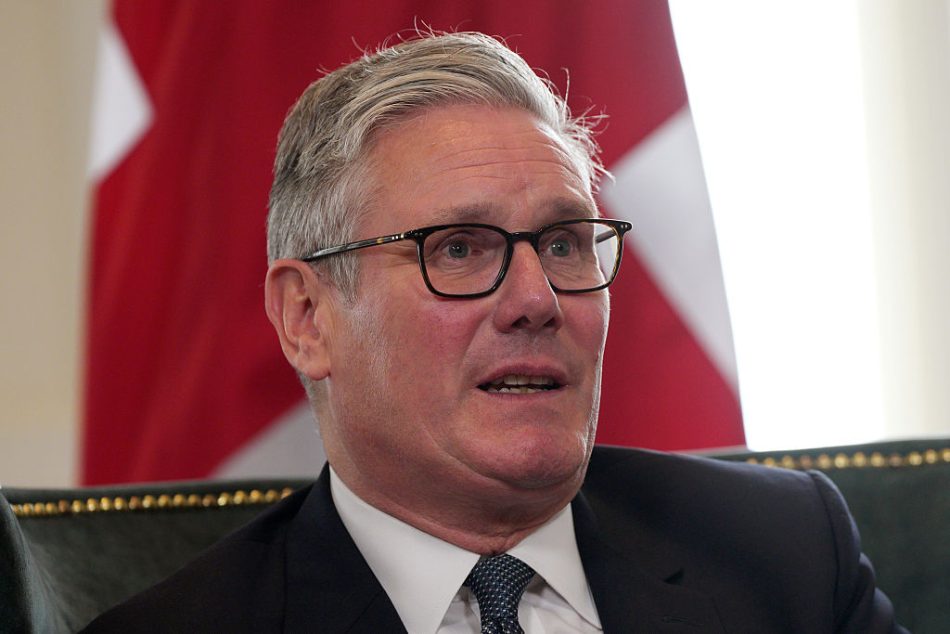When Donald Trump won a second term in the White House last November the response in Europe was one of barely disguised horror. ‘The European Union must stand close together and act in a united manner,’ declared Germany’s Chancellor Olaf Scholz.
The French are demoralised and angrier than ever with their ruling elite
Emmanuel Macron posted a message on X: ‘The question we, as Europeans, must ask ourselves is, are we ready to defend the interests of Europeans?’ The president of France got his answer on Sunday evening. No. The trade deal agreed between Ursula von der Leyen, the EU Commission president, and Donald Trump has not gone down well in much of Europe.
Scholz’s successor, Friedrich Merz forecast that Germany’s economy would suffer ‘significant’ damage because of the deal. EU exports will have a tariff of 15 per cent, which is superior to the customs duties before Trump’s re-election, but much lower than his threatened 30 per cent tariff. Additionally, von der Leyen has promised the bloc will purchase energy worth $750 billion from the United States and make $600 billion in additional investments. According to Hungary’s Viktor Orban: This is not an agreement… Donald Trump ate von der Leyen for breakfast.’
The most strident criticism of the deal came from France, where in a rare display of unity the terms of the agreement were savaged across the political spectrum.
Prime Minister Francois Bayrou said that ‘it is a dark day when an alliance of free peoples, united to assert their values and defend their interests, resigns itself to submission.’
Trade minister Laurent Saint-Martin described the deal as unbalanced and said the government should not accept ‘what happened yesterday because that would be accepting that Europe is not an economic power.’
It was telling that Saint-Martin said ‘Europe’ and not ‘France’. For centrists like Saint-Martin – he was one of the first to join Macron’s fledging En Marcheparty in 2016 – France and the EU are indistinguishable.
Macron’s predecessor (and mentor), Francois Hollande once accused him of ‘believing in nothing and having no conviction’. That is not true. Macron has one unshakeable conviction and that is the EU.
It is why he won’t let Brexit go, taking every opportunity to savage Britain’s decision to leave the bloc. Twice during his recent state visit he went on the attack. Britons were ‘sold a lie’ over Brexit he said at one point, adding on another occasion that the country ‘was stronger when part of the EU.’
As yet there has been no response the Elysee to von der Leyen’s trade deal. Perhaps Macron is still working out how best to spin the fact that Britain’s tariff rate with the USA is 10 per cent.
Marine Le Pen lost little time in pointing this out, posting on X that the EU ‘has obtained worse conditions than the United Kingdom.’ The leader of the National Rally described the deal as ‘a political, economic and moral fiasco’ and said that that ‘this form of globalisation, which denies and destroys sovereignty, has been outdated for many years.’
The majority of the French agree with her. In an interview with the BBC in 2018, Macron admitted that if given the choice his people would probably follow Britain out of the EU. This is one reason why he has been so determined to make life difficult for post-Brexit Britain: pour encourager les autres.
Macron’s strategy has been partially successful. A poll last year revealed that 62 per cent of the French are opposed to Frexit. The bad news for the president is that 69 per cent of them have a bad opinion of the EU.
The poll was conducted a month before the European elections, which resulted in a resounding victory for Le Pen’s Eurosceptic party and a humiliating defeat for Macron’s Europhile movement.
When Le Pen reached the second round of the 2017 presidential election it was with a promise to quit the EU. Two years later she abandoned that position and vowed to reform the bloc from within. Her party won’t return to Frexit but it will increase its Euroscepticism between now and the 2027 election. The same goes for the hard-left’s Jean-Luc Melenchon, who loathes Brussels as much as Le Pen. Bruno Retailleau, the leader of the centre-right Republicans, is also a long-standing critic of the EU’s ambition and voted against the EU Constitution in France’s 2005 referendum. That result, he said in a 2020 interview, along with Brexit, ‘have shown one and the same thing: Europeans do not want a federal Europe.’
Across France enmity towards the EU has strengthened in the last year. The Mercosur trade deal agreed with South America in December is widely unpopular and France’s failure to control its borders is blamed on Brussels.
The French are demoralised and angrier than ever with their ruling elite. A citizens’ collective called ‘Bloquons tout!’ (Block everything) is using social media to mobilise people for a day of protest on September 10. ‘Boycott, disobedience, and solidarity’ is their rallying cry and they are urging people to take to the streets across France.
Will it achieve anything? Probably not. After all, what’s the point of protesting in Paris when all the big decisions about France’s future are made in Brussels.









Comments